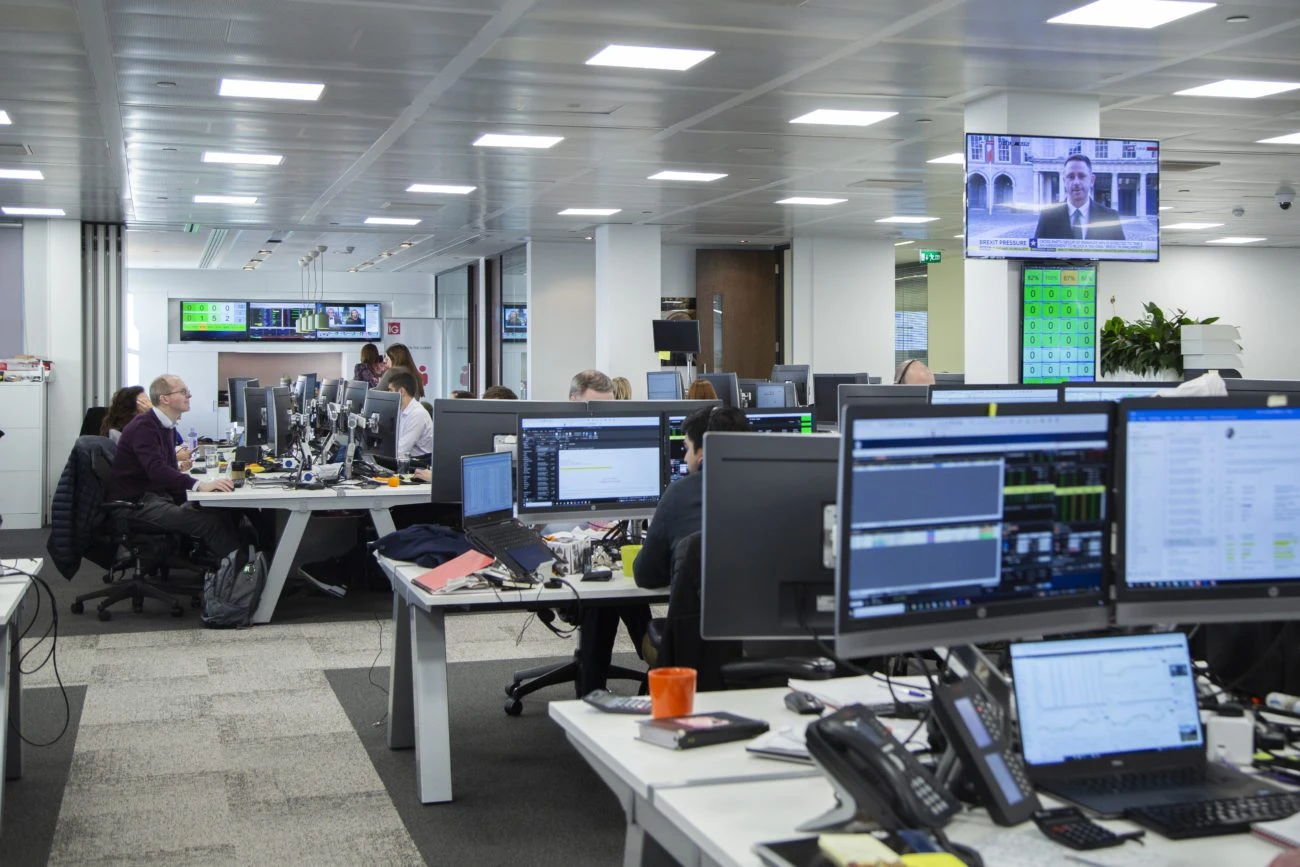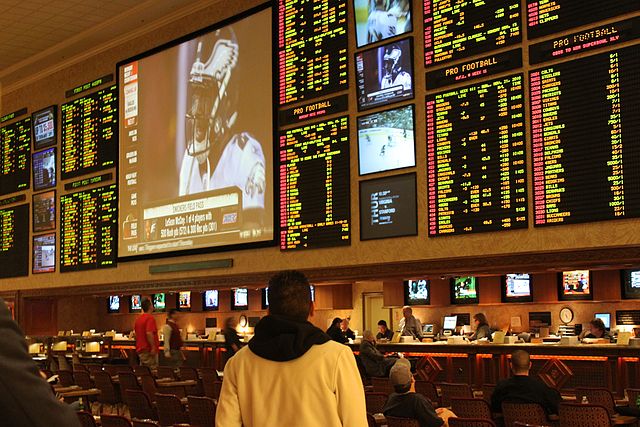Solving sports betting – the AI way

Buzz phrases don’t get much buzzier than “AI-assisted”. The mere mention of the phrase either prompts excited optimism about a tech-driven future – or a very real fear of the same.
In the betting and gaming space, the use of artificial intelligence may not quite engender the apocalyptic visions of the AI naysayers in the wider world. But it still appears to offer the possibility of very much changed business practices.

Notably, given the central importance of data to any potential machine learning or AI developments, it is the two leading sports data collection entities that are leading the charge.
The pair launched new AI-assisted sports betting products that appear to point to a new era of sportsbook margin management.
In 2022 Sportradar first launched Alpha Odds, an automated odds recalculation tool. This, the company said, allows its sportsbook clients to generate bespoke betting prices in line with their risk exposure and liabilities.
More recently, the company said the product, which is now in operation with 60 of its clients, delivered an average 10% profit increase in 2023.
Then in January rival Genius Sports announced the launch of its Edge product which similarly promises automated pricing which it says is designed to unlock the maximum amount of profit within every single bet.
The promise of AI
The promise of AI in the context of sportsbooks is reliant on access to data according to Darren Small, SVP for Managed Trading Services (MTS) at Sportradar. And lots of it.

“AI can do a huge number of things, but it is clear it can only improve the outputs,” he says “There needs to be a feedback loop, otherwise it won’t work. A company needs to have data, the more data the better, to make the most of the AI. Once a company has the data, then the future opens up.”
But what kind of future? As with wider discussions around developments in AI, the potential for AI is more notional right now even while aspects of machine learning are being deployed across the global network of sportsbooks.
“It is still early days for the industry when it comes to understanding the benefits automation might bring,” says Small. “At present many operators are still at the stage of understanding how automation changes the nature of the trading desk.”
An explosion of events
Even without the enhancements being spoken about by both Sportradar and Genius Sports, and by extension taking place across all sportsbook operations, those working on the sportsbook backends across the industry know how much the nature of the challenge has changed in recent years.
“Just the explosion of events is immense,” says Tom Holland, product director at Genius Sports. “You can’t manage hundreds of thousands of events per year manually.”
Small at Sportradar points out that the company’s managed trading systems sportsbook product itself deploys the technology provided by VAIX. Bought in 2022, VAIX provides AI learning across the 60m-a-day transactions that take place across more than 60 sportsbooks.
“When you have that many transactions taking place on the platform, it is easy to see why we’re adopting machine learning,” Small adds.
AI alchemy
Enter automated odds calculation. The promise of both Alpha Odds and Genius Sports’ Edge product is that with this data to hand, the possibility opens up to use the data to manipulate margins. Such products offer the prospect of managing an entire offering in order to maximise returns.

“We can adjust the prices that a client is offering to their customer base to reflect the client’s financial position and their liabilities and subsequently improve the efficiency of their trading,” says Small.
“The system within Alpha allows operators to take a number of different strategic directions – they can choose how they offer their odds to their customer and how they service their end customer.”
The system is doing what we might have done manually 15 years ago with one trader and one match making a decision based on the data available, only doing it at scale.
“So, we have the system in place, the machine if you like, and overseeing that is our liability trading team who make sure the system is configured in the most efficient and appropriate way per customer,” Small says. “It’s a bespoke solution.”
The system will “understand the tendencies” of each individual client and understand where they may want to “potentially get a little bit more aggressive or a little bit more conservative. And we will configure those odds in a way to get the most out of these models on an individual client level.”
Smooth operators
Clyde Harris, partner at betting and gaming product development house Circle Squared, says it stands to reason that such systems will “smooth out volatility” depending on what strategy the sportsbook in question so desires.
This is what both such AI-assisted systems promise – the possibility of not being hit by the “low lows” in terms of margin while also still hoping to benefit from the higher margin returns.
Tom Daniel, partner at sportsbook operations consultancy Propus Partners, says it is advances such as this which has relatively recently birthed a number of “small quant shops” as he describes them, to rationalise that over time it might be possible to “solve sports betting”.
“The people working on these type of things will be making incremental improvement,” says Daniel. “But the grand aim of ‘solving’ sports betting in the way that some high-frequency traders think they have solved the financial markets is a way off yet.”
What happens next?
Small agrees. “This is a starting point for using AI,” he says. “What Alpha represents is a further mechanisation, if you like, of the sportsbook backend.
“This process was started many years ago with the introduction of algorithms,” he adds. “That was the first step and what we are doing with Alpha Odds is a logical move on from that. It is about building blocks.”
It is a process which is ongoing. “It’s entirely possible that we will reach a point where pricing is done by machine-learning algorithms, customer management is done by automated liability management systems and bet acceptance is done by a combination of both,” says Simon Trim, a consultant currently working on sportsbook strategy and operations with backend provider 10Star.
“Automation reduces the manual work on trading desks and will continue to do so, particularly in risk management and customer segmentation, while still maintaining the subjective input from trading desks,” says Holland from Genius Sports.
New content types

What might AI do next? “Once you automate certain processes, then you free up traders to think about new content types rather than simply trying to optimise what they already have,” adds Holland.
“What we have developed and offer to market in terms of machine learning and the automation of sportsbook processes is itself a leap forward. But what comes next will be really interesting, because the more data the system ingests, the better the outputs,” he argues.
Where that leads the sports betting industry will no doubt be as interesting as what happens in the wider world with AI. “With the volume of data available to us, I can see greater use of the technology to improve operational efficiencies right across the board. AI will touch every aspect of an operators business – that where I think we’re heading”, says Small.
“The future will be very exciting when it comes to what sportsbooks will be able to achieve and the products they will be able to offer in the near future.”
